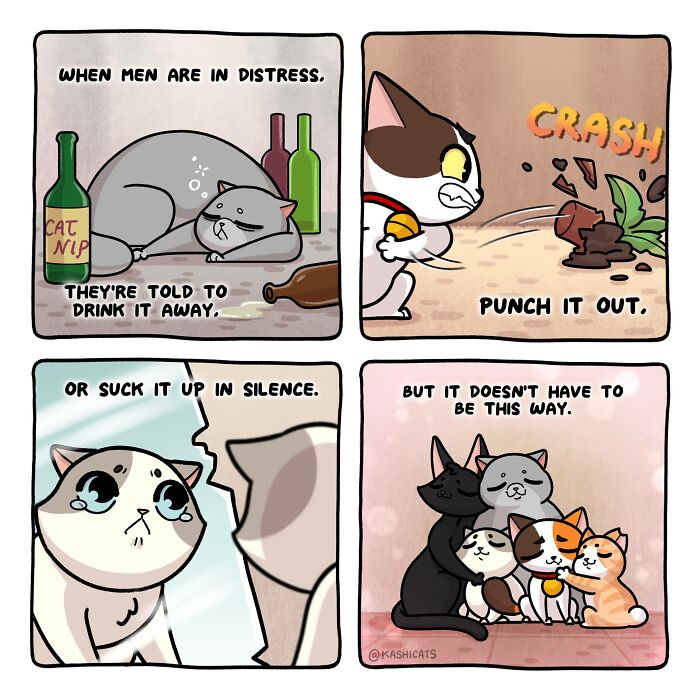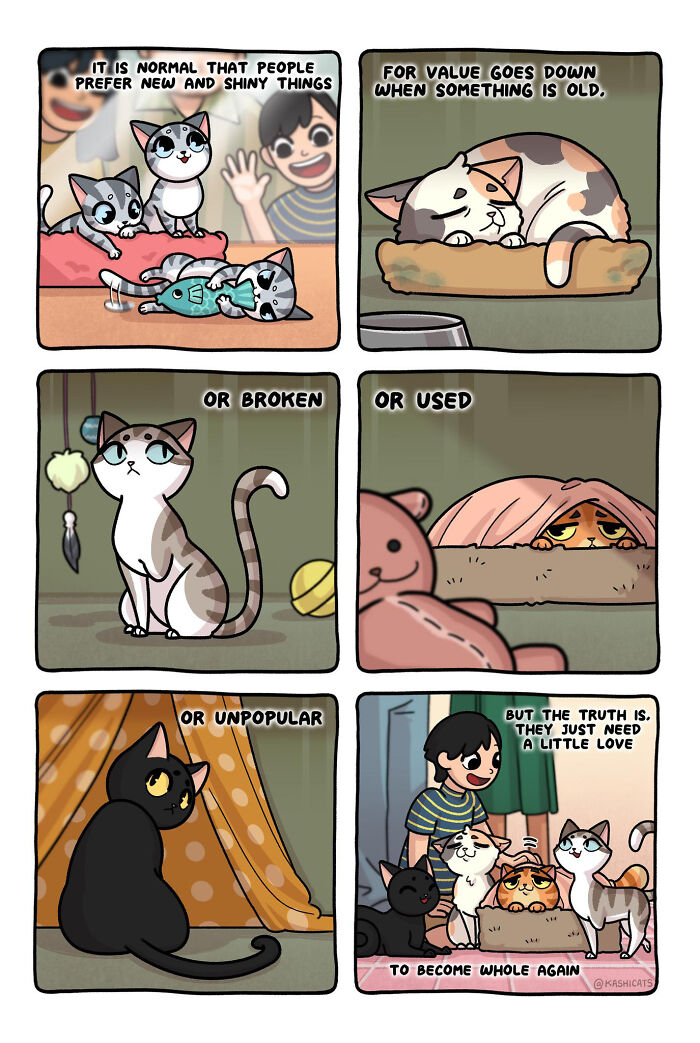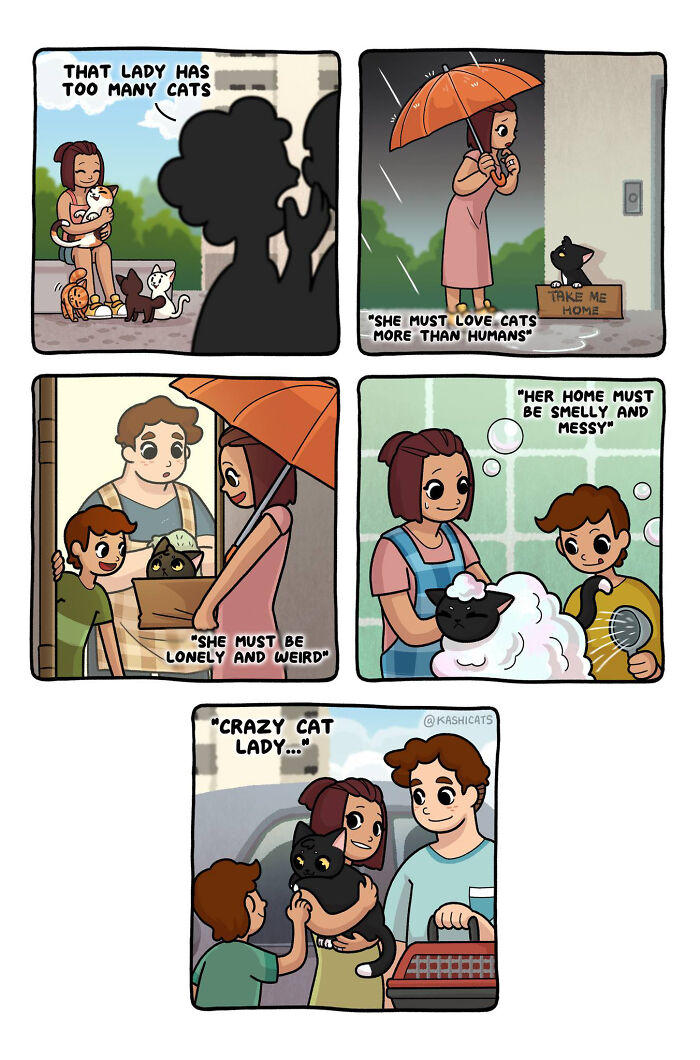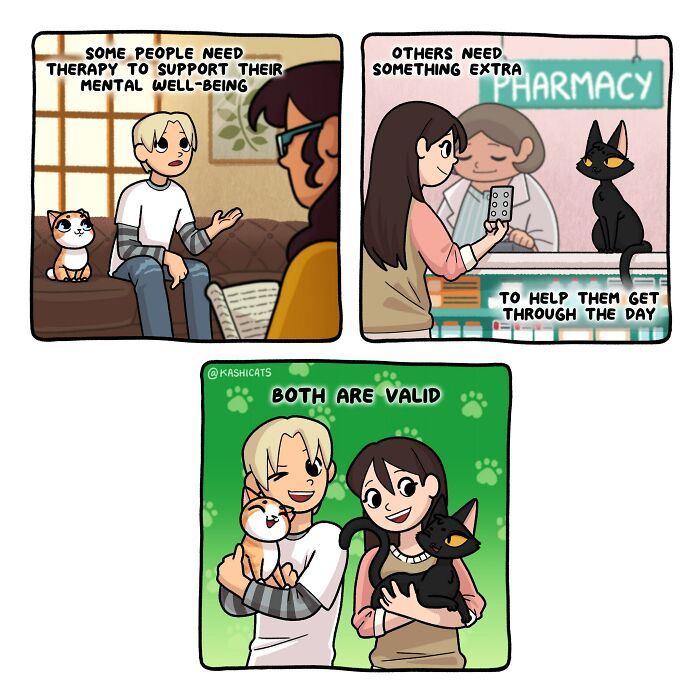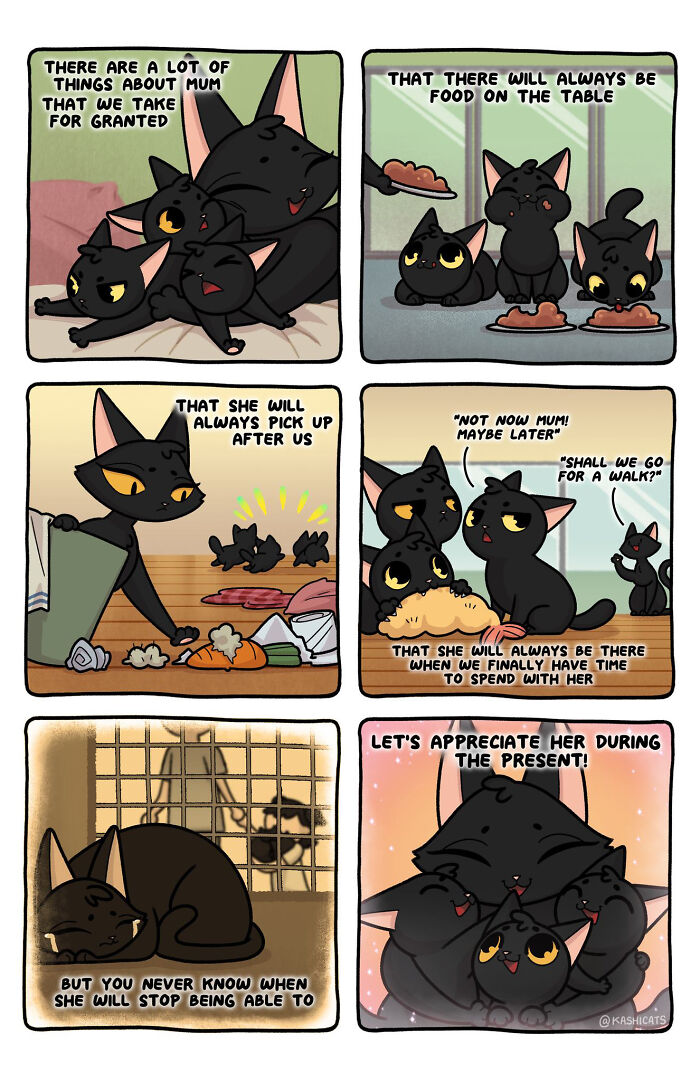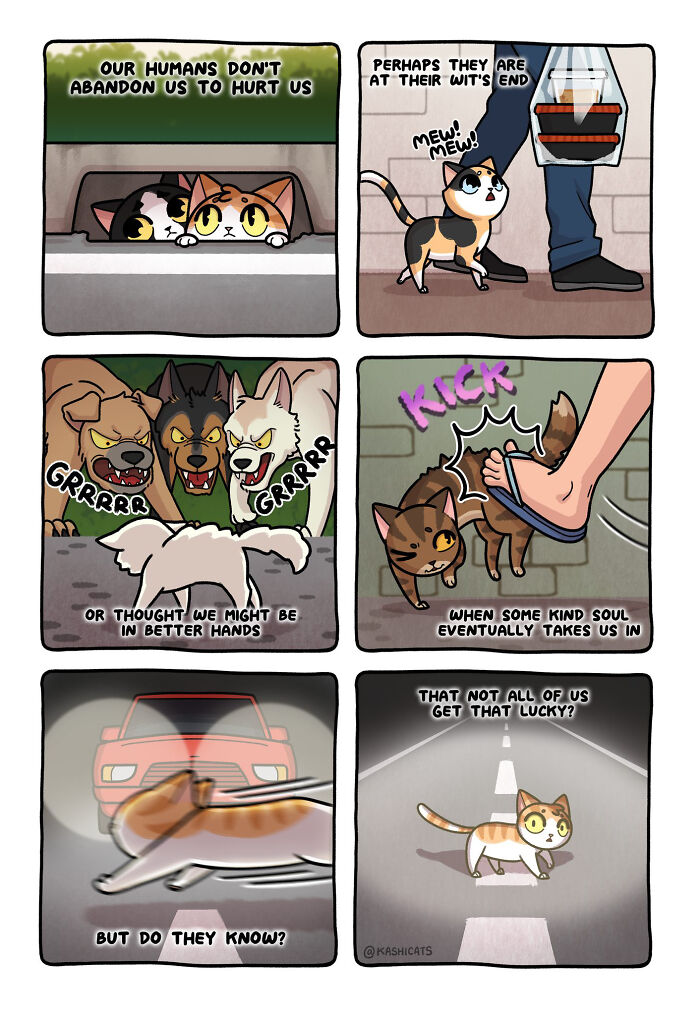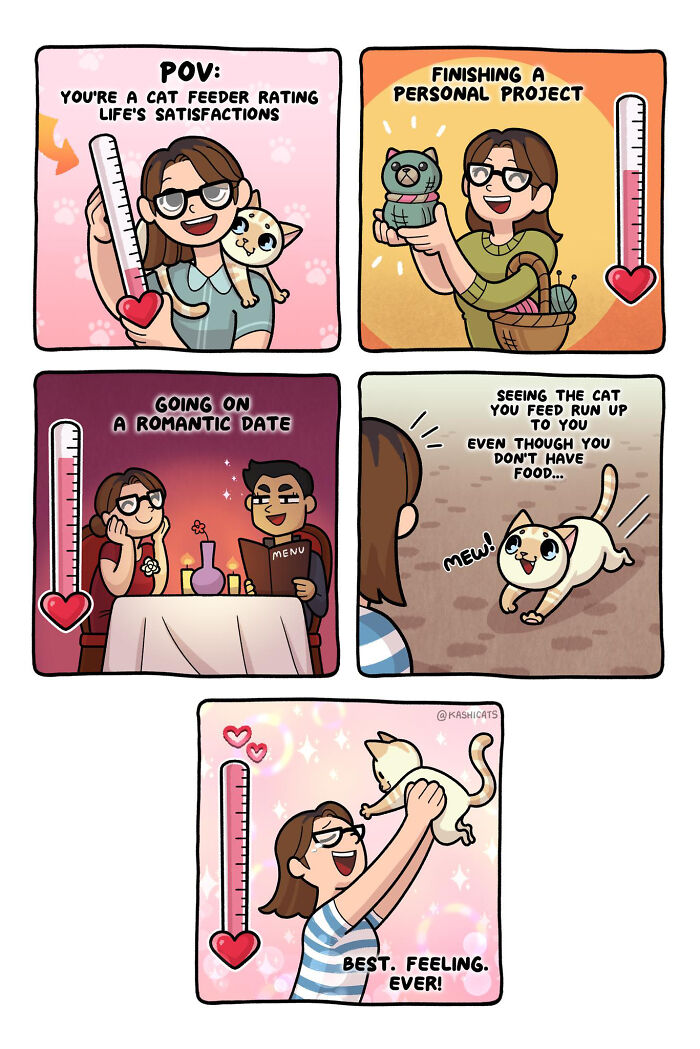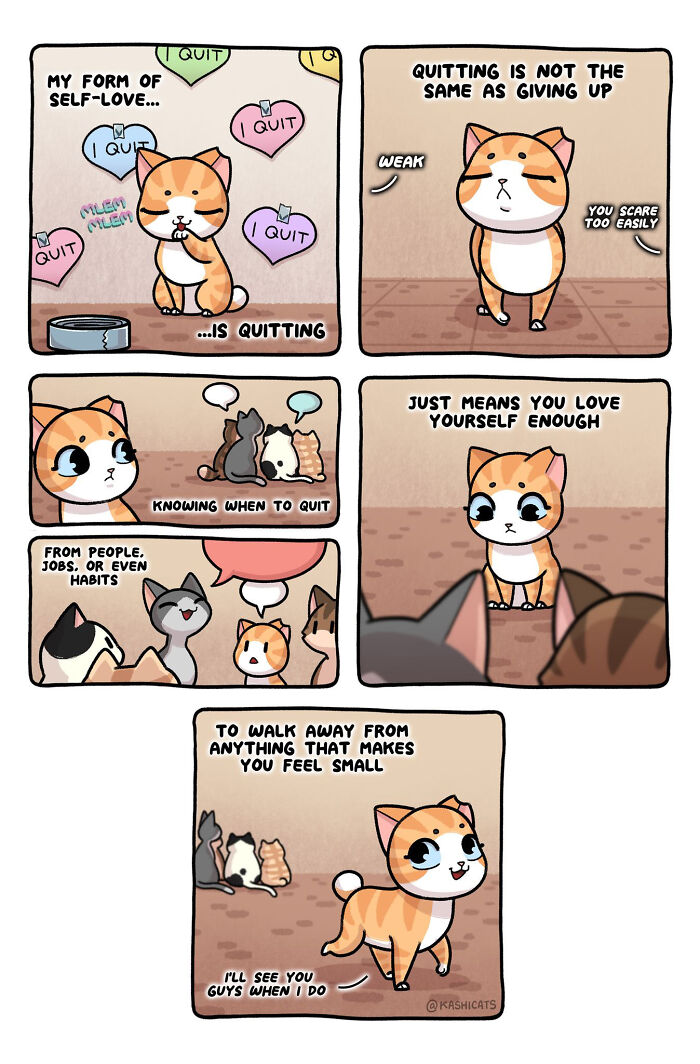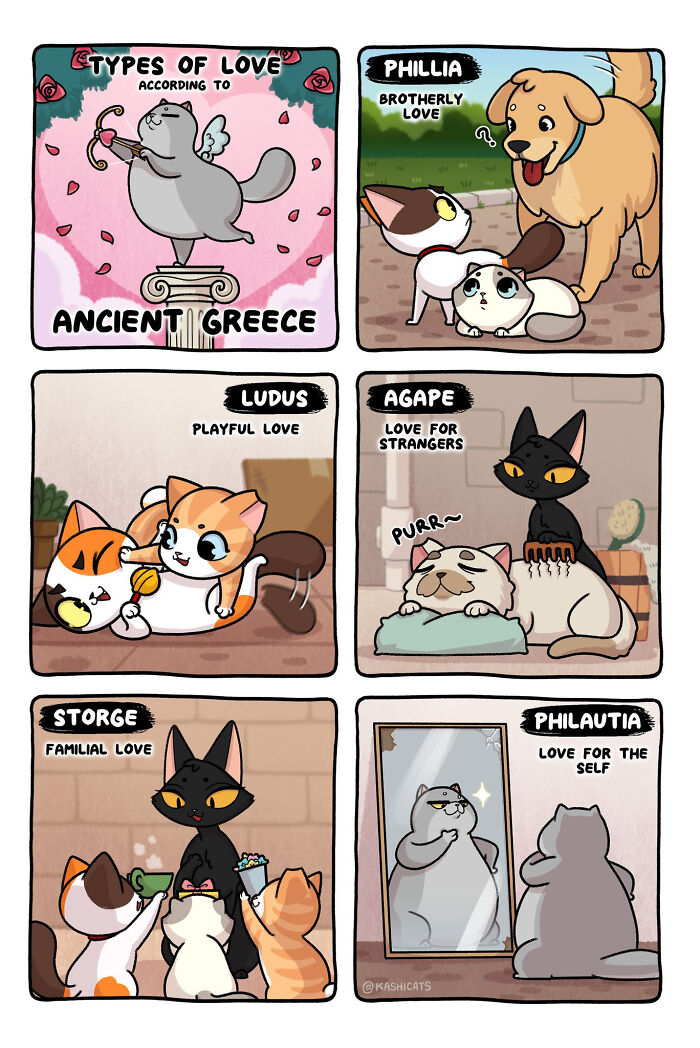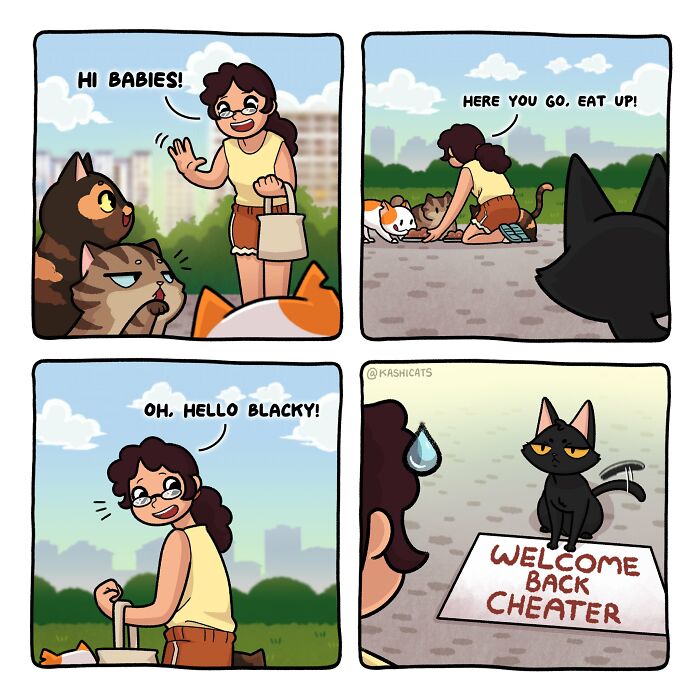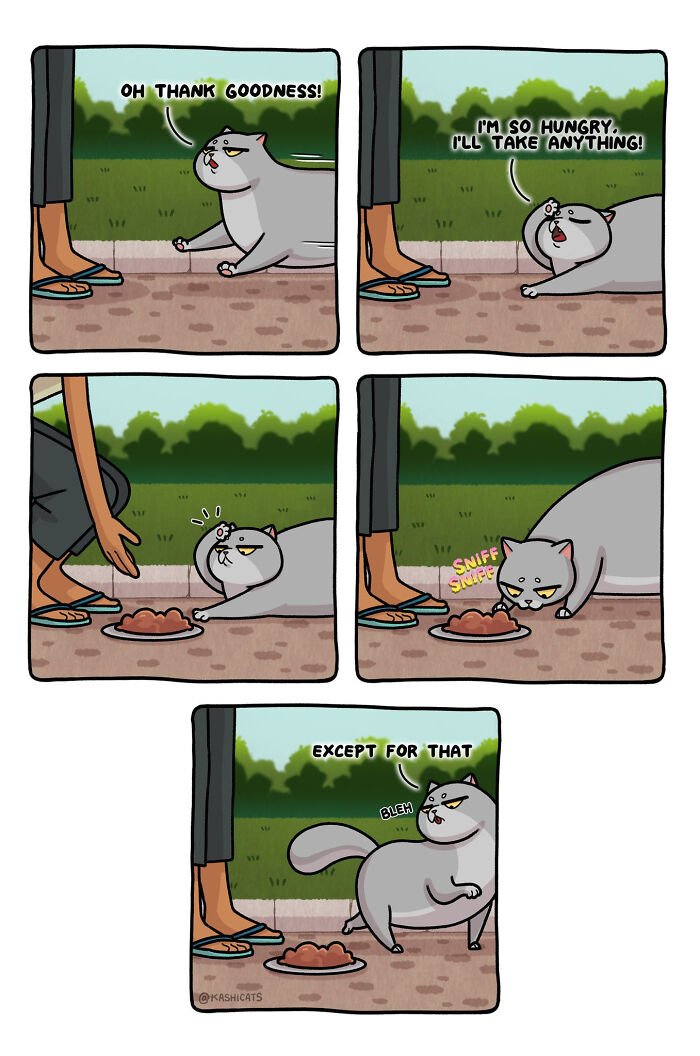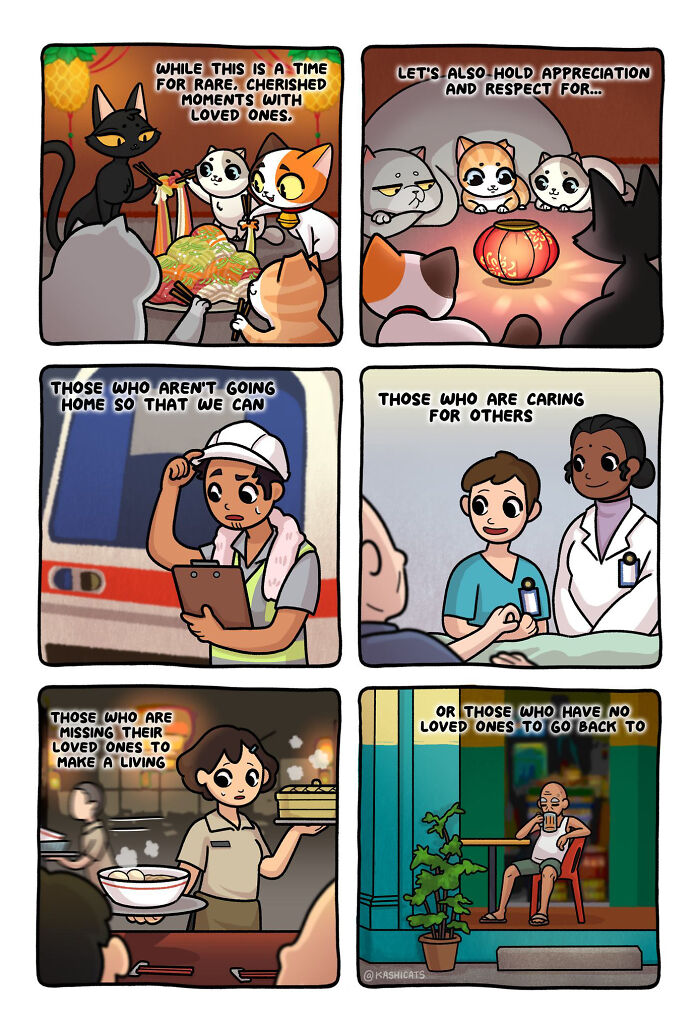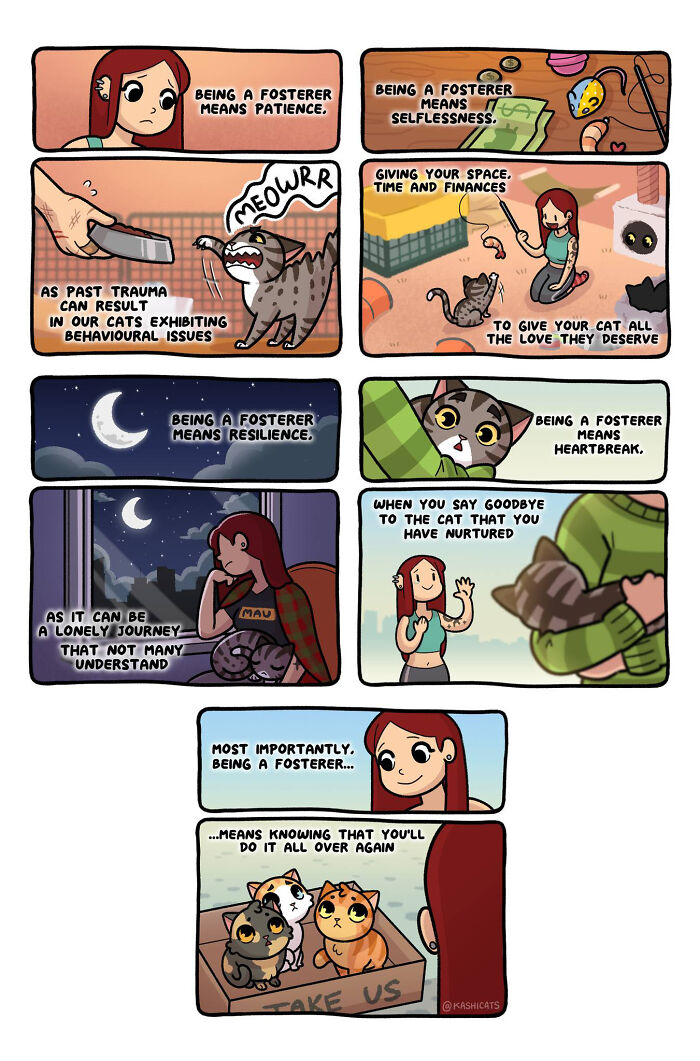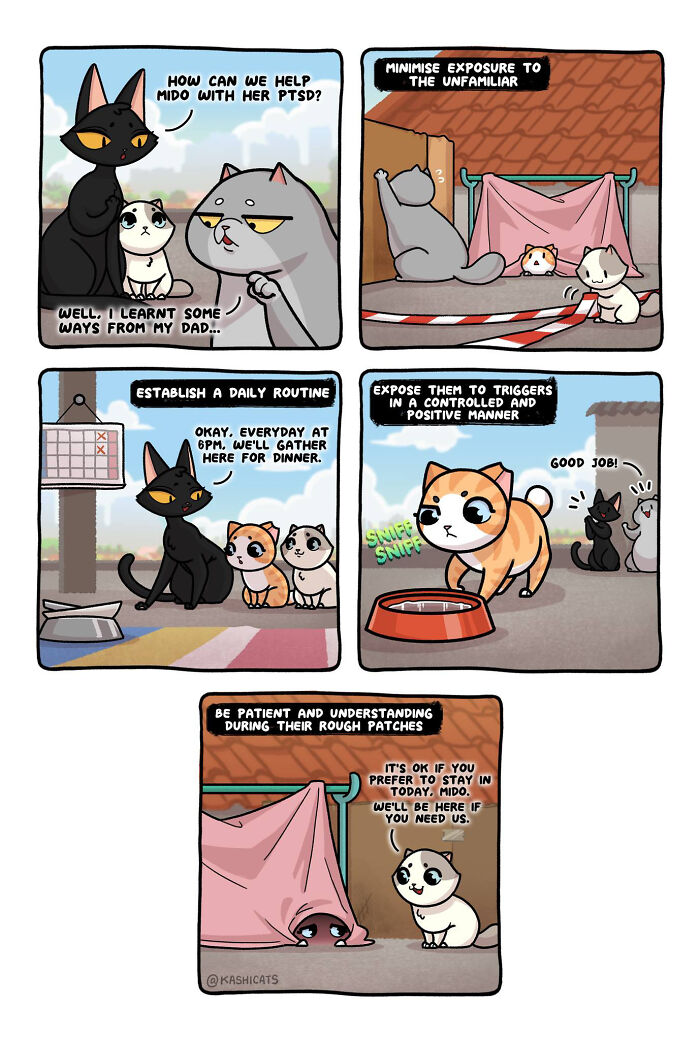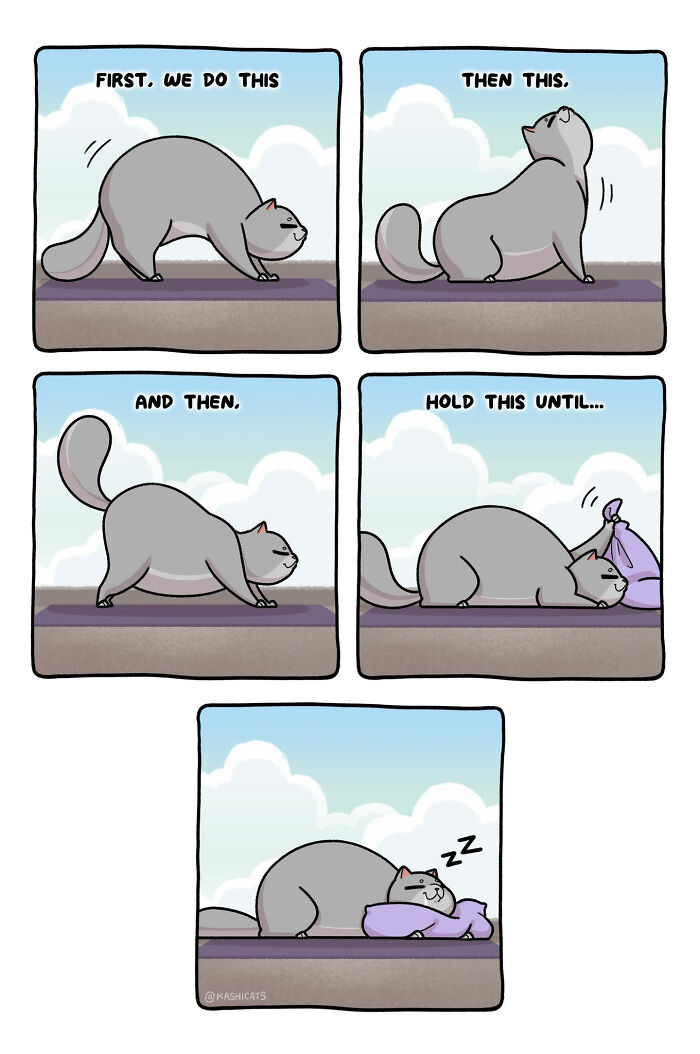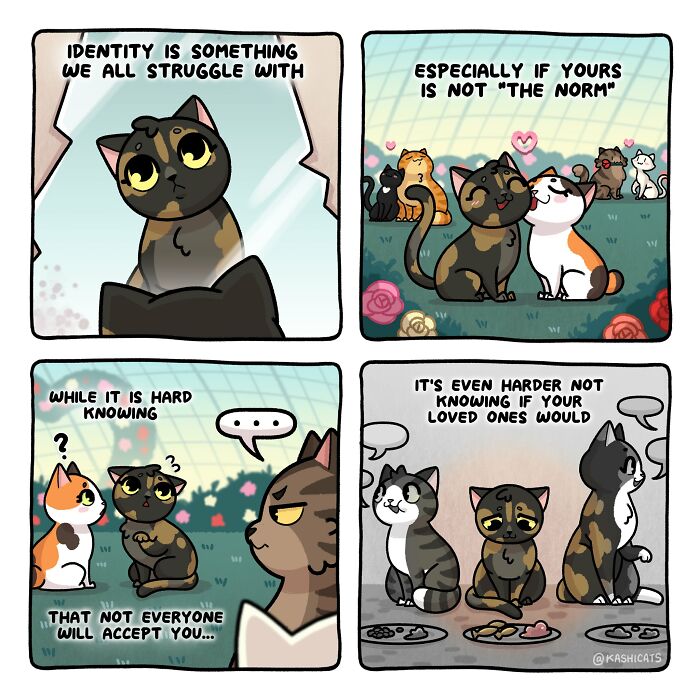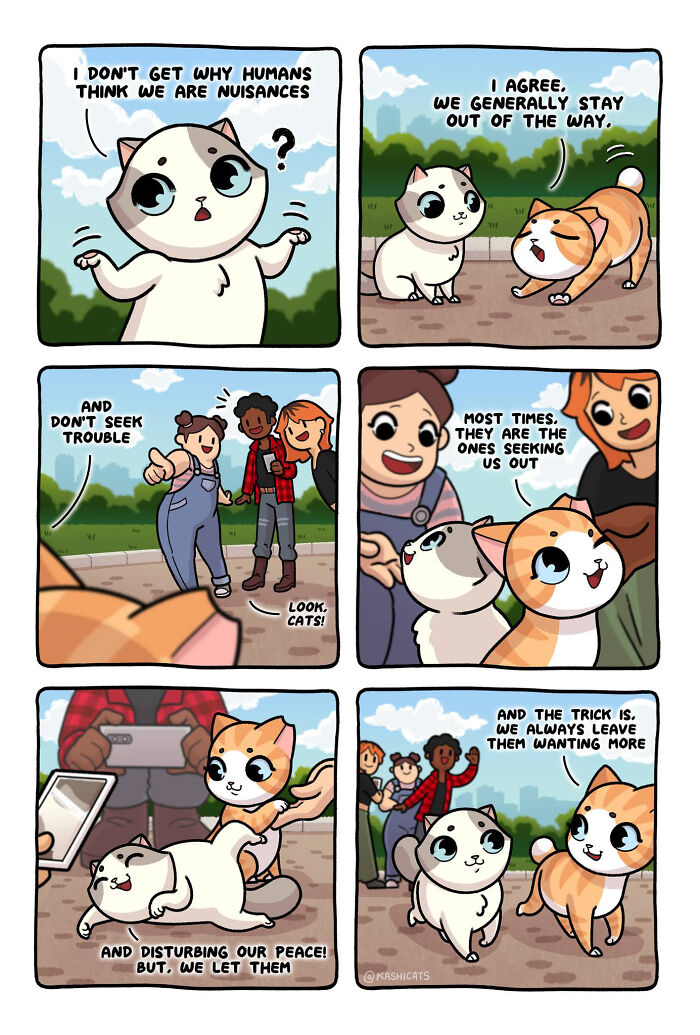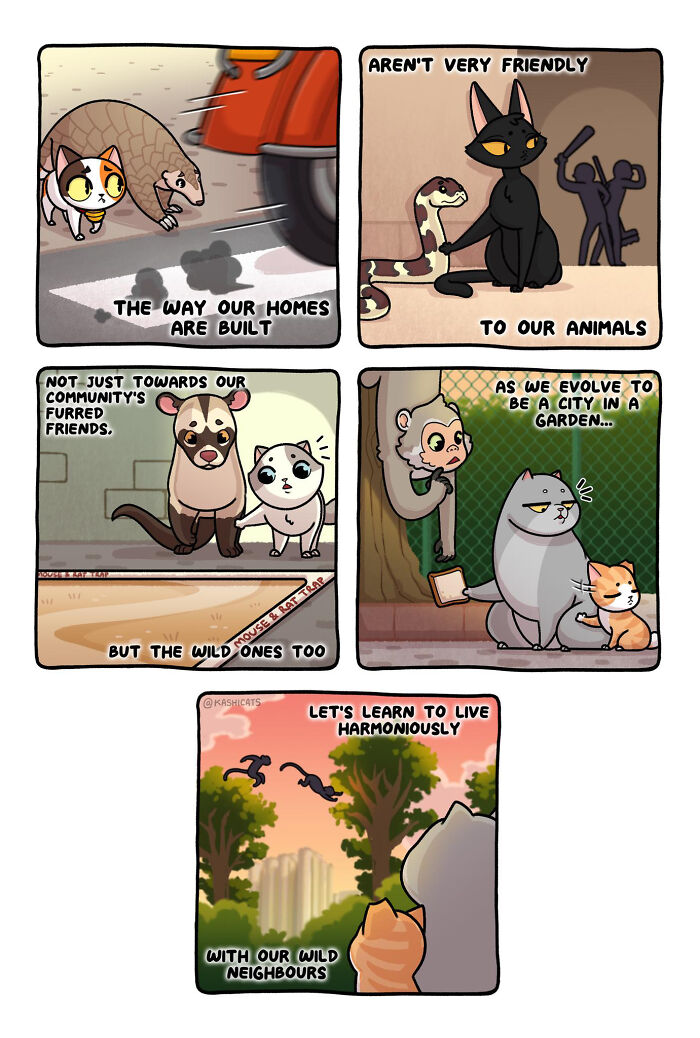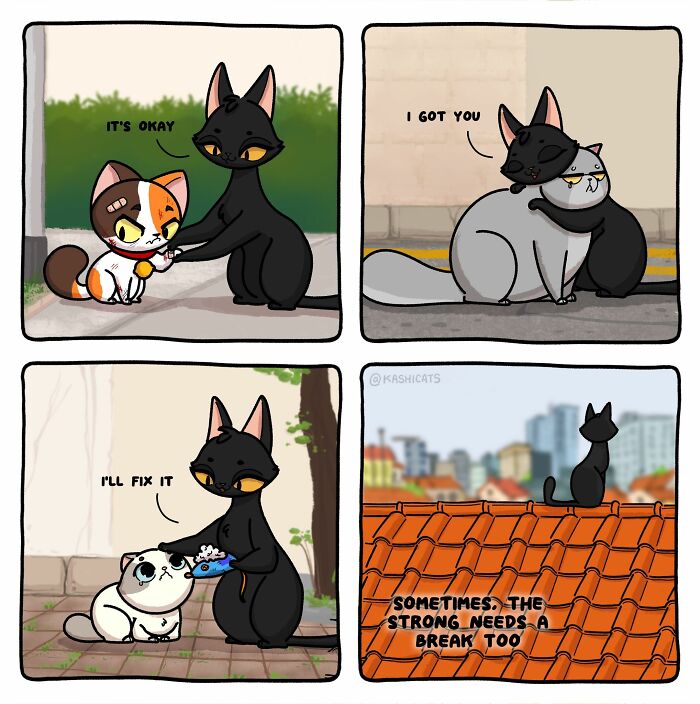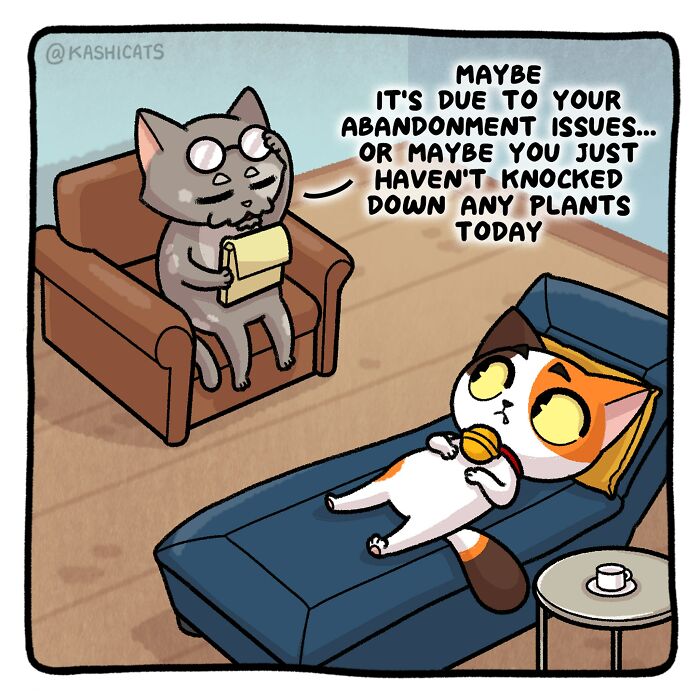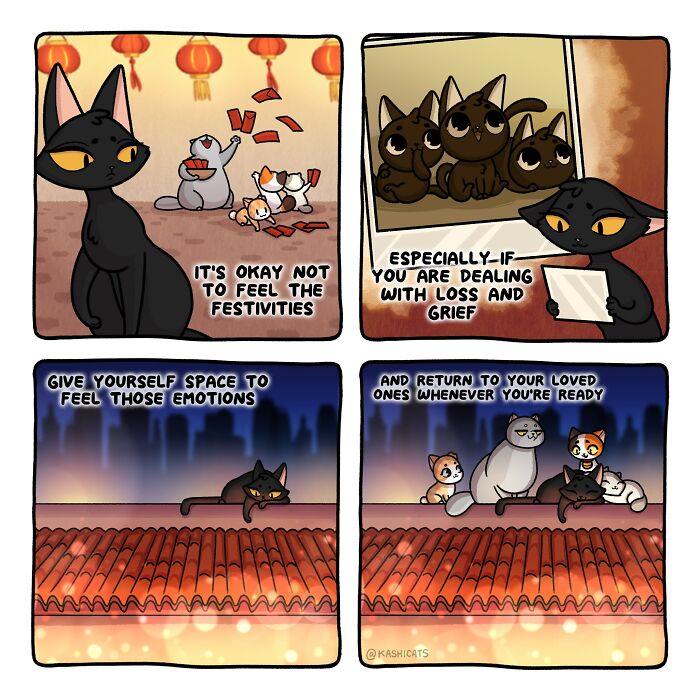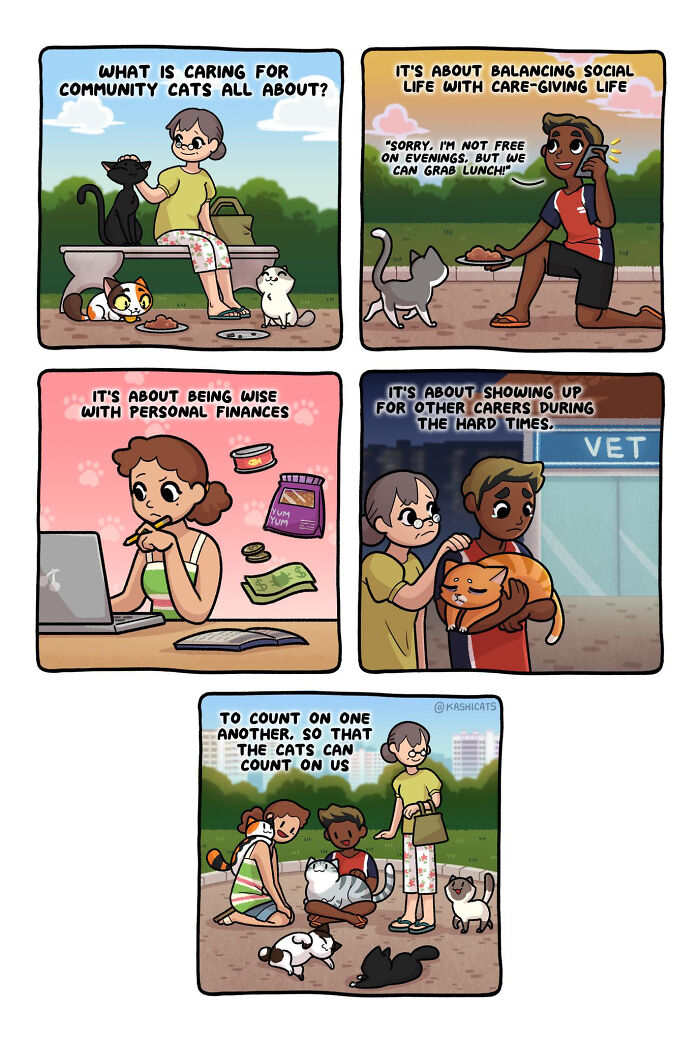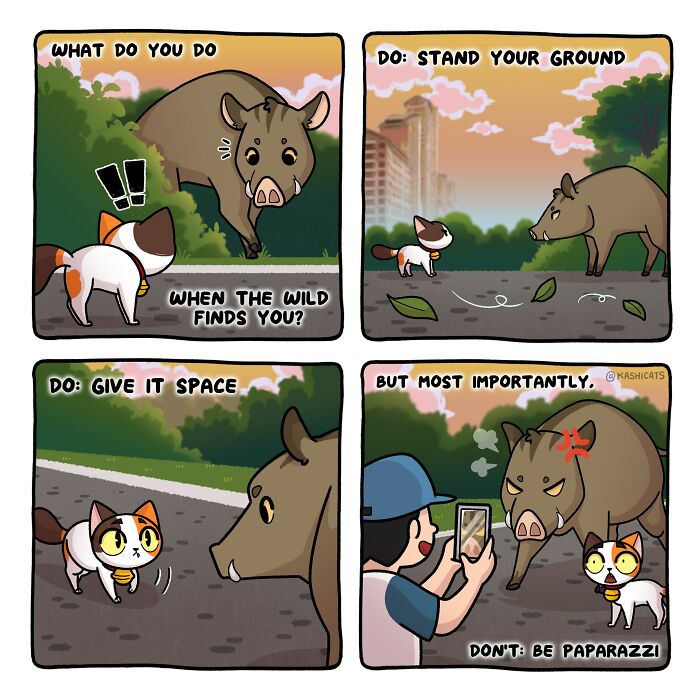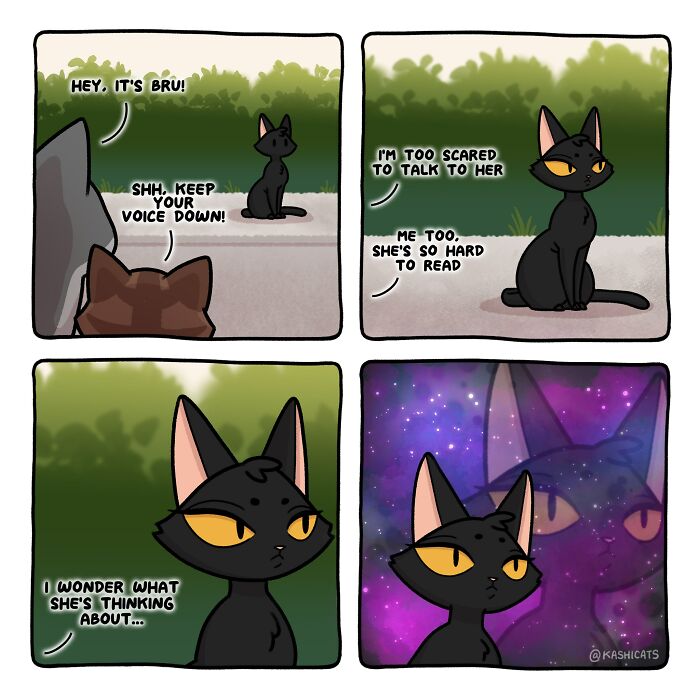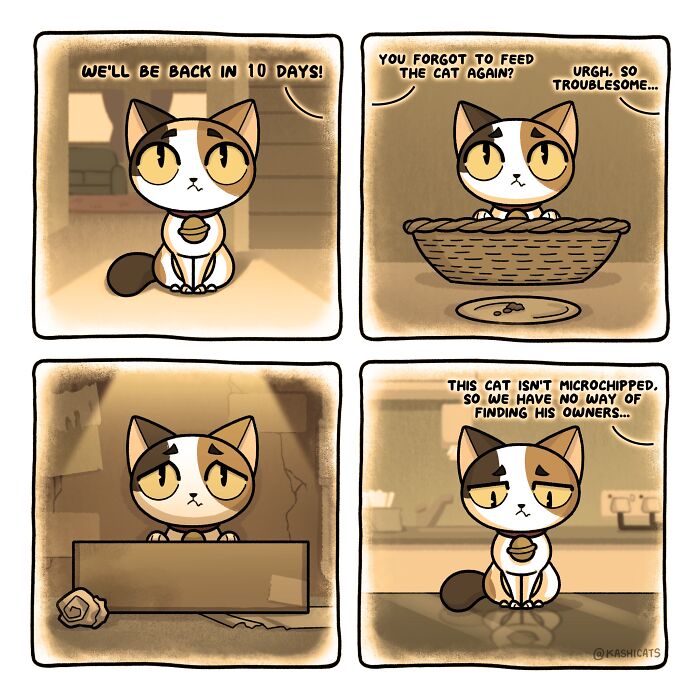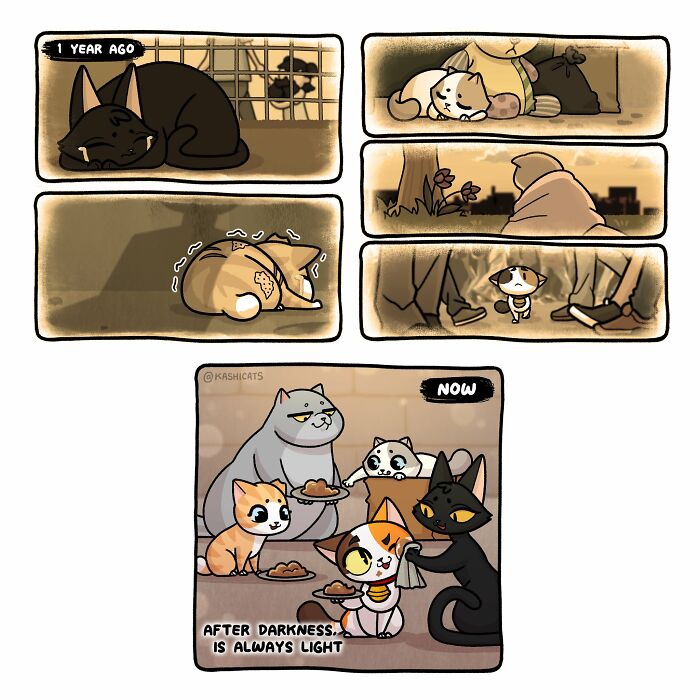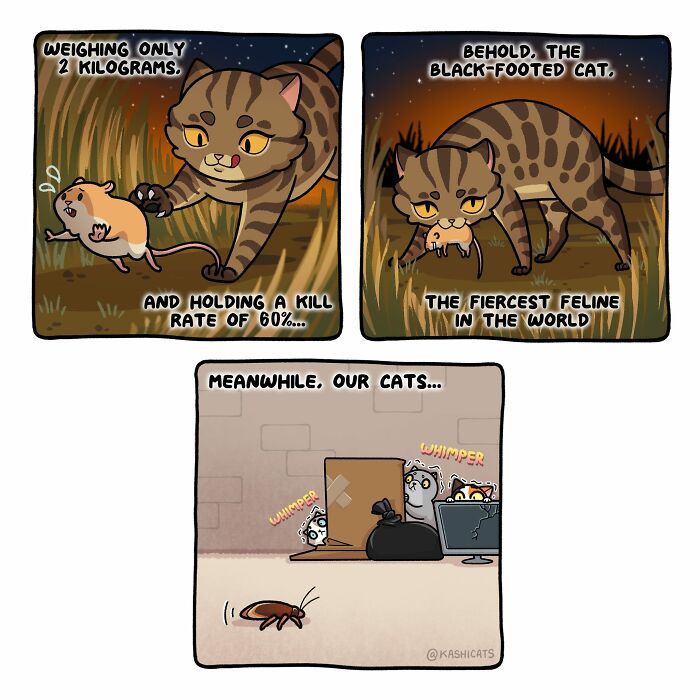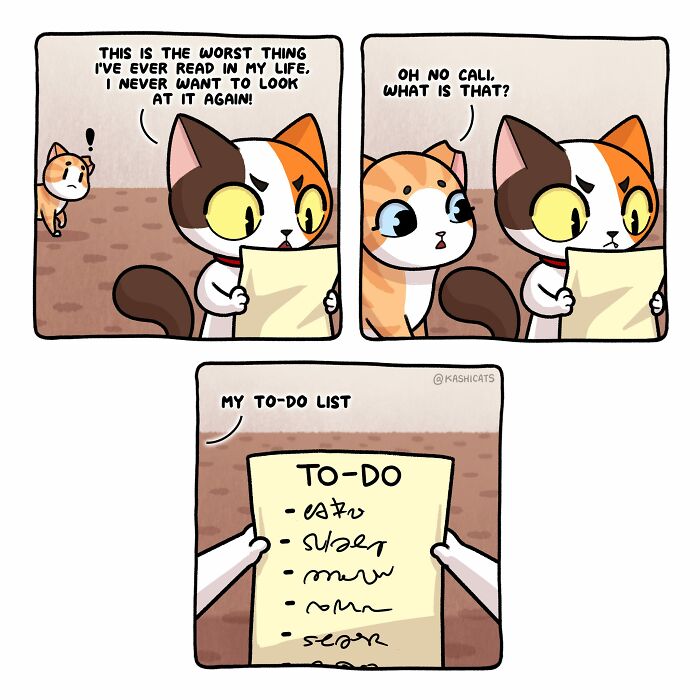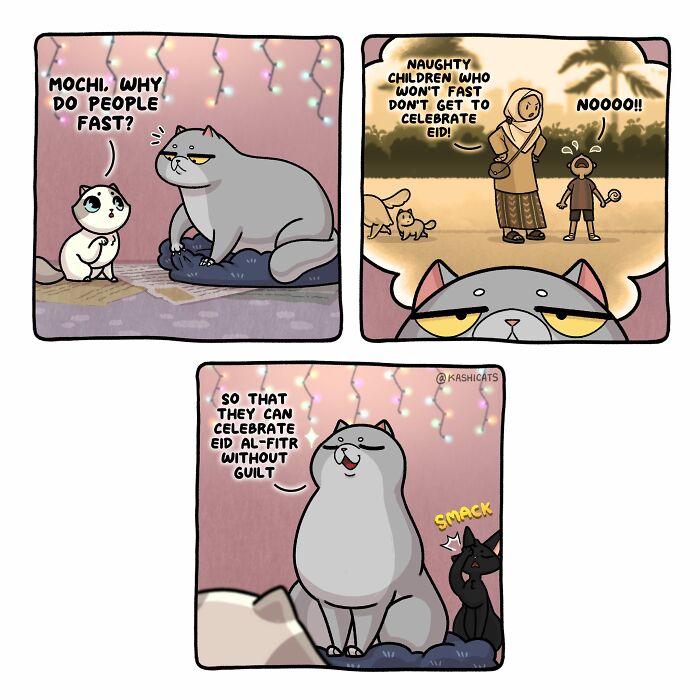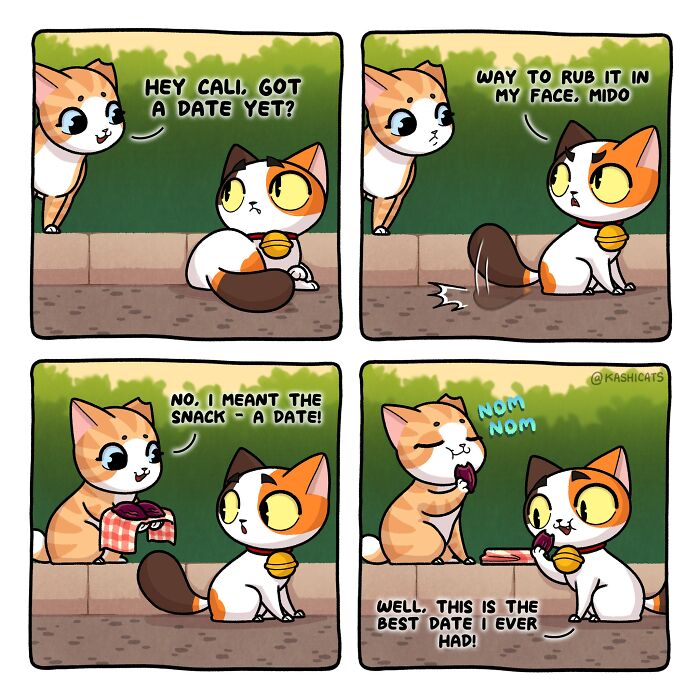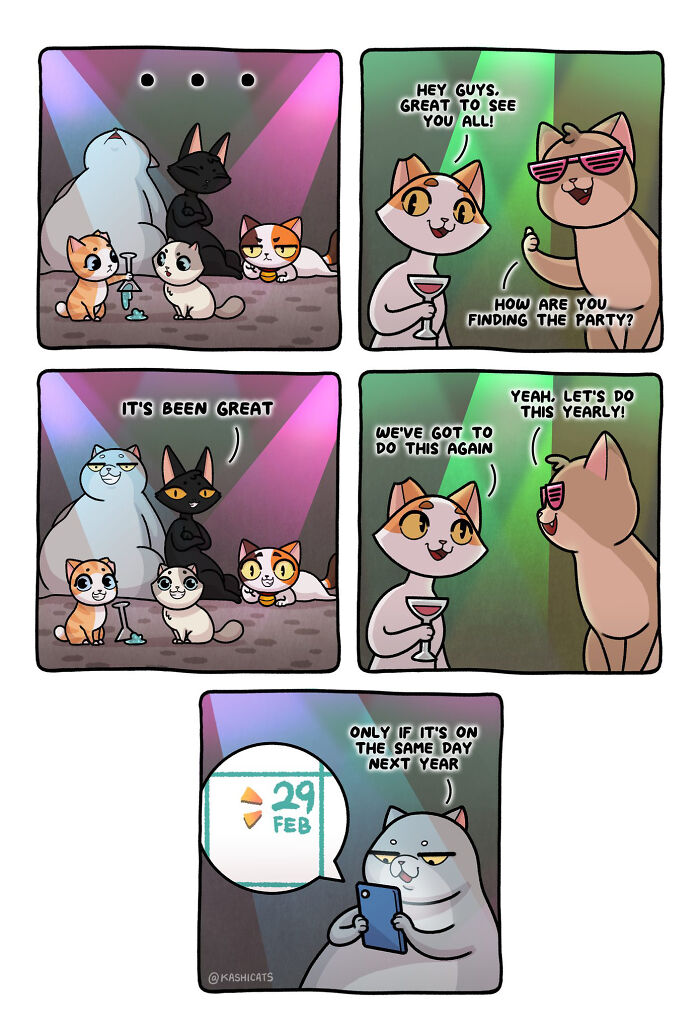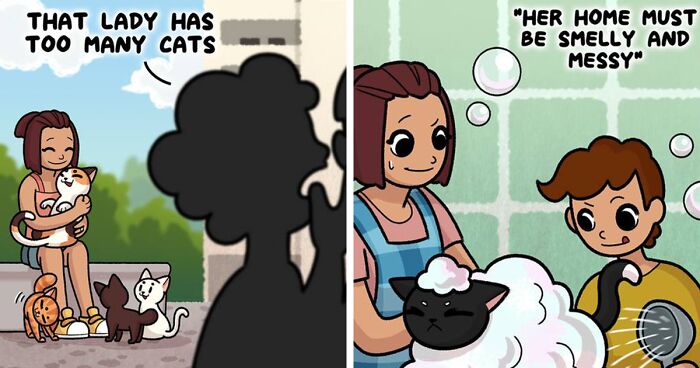
Artist Brings Awareness To Foster Care And Other Issues Through Cat Comics (35 Pics)
Interview With ArtistSadly, for one reason or the other, cats can get left behind. In the US alone, it's estimated that there are 70 to 100 million unowned, abandoned, and feral cats. Inspired by this gloomy reality, the artist behind Kashi Cats made it their mission to create stories in the form of comic series educating people on foster care, cat welfare, and much more.
In other words, Kashi creates "stories of our neighborhood cats." The artist's comics range from funny cat behavior to heartbreaking abandonment stories and sometimes explore mental health problems experienced by people. Either way, Kashi's comics are here to shed light on various issues that seem to be deprived of our attention.
More info: Instagram
This post may include affiliate links.
I literally want to cry, I'ma thank my dad right know for all he puts up with me
Bored Panda reached out to the creators behind Kashi Cats, who told us more about themselves and the inspiration behind them.
“Kashi Cats is a comic and illustration series that talks about social and animal welfare issues across the world. Begun during the global pandemic in 2020 by a Singapore-based design and experience company, Dezign Format, Kashi Cats was envisioned to be a point of engagement for the community where people could relate to the shared stories of humor and humanity.
The purpose of this project is to use the online space to create stories that relate to mental wellness in our day-to-day lives and awareness of the environmental challenges we face today, by letting Instagram readers communicate, and generate laughter, appreciation, and hope. In times of uncertainty, art amplifies issues and brings comfort to our souls.”
I love black cats and I would prefer an old cat because they aren't hyperactive like kittens and are easier to manage. (Kittens are good too, this is just my preference. Plus, old cats don't have much time left, it's nice and statisfying to give them a happy life when they are with you. Doing so makes me happy)
The Singapore-based design and experience company also shared what attracted them to specifically illustrate the adventures of neighborhood cats.
“The storylines and the characters took inspiration from the stray cats in Singapore, which we felt were a great representation of our unique environment, with different groups portrayed by the different characters and breeds.
The instacomic takes readers through the adventures of five stray cats - Cali, Mochi, Mido, Butter, and Bru - who live together. Each of the characters was developed to have a different personality with individual traits. Despite their differences, the Kashi Cats live together, and support one another as each one of them lives through their own life experiences.”
I use both. It works for me and I’m so grateful I’m able to get the help I need.
“Cali (HE/HIM) is the face of the group, who is more mischievous, heroic, and energetic. Cali ran away from his home as his owners were negligent. Cali's Backstory: Part 2, Part 3, Part 4.
Bru (SHE/HER) is the mother of the group. She is wise and very knowledgeable of past and current events. Bru’s story started in a pet center, where she faced troubles getting adopted due to the stigma of black cats and being an older cat. She was taken home by one of the shelter workers but later decided to leave when her caretaker planned to rehome her due to financial hardships. Bru's Backstory: Part 1, Part 2, Part 5.
Mochi (HE/HIM) Only has a soft spot for Mido as he rescued her from an abusive family. He has always been a street cat. Mochi likes to eat and sleep but despite his reserved appearance, Mochi is kind, empathetic, and caring - a trait he took after his father. Mochi's Backstory: Part 1, Part 2.
MIDO (SHE/HER) is the shy, timid cat of the group, her insecurities are caused by the mistreatment she endured by an unkind family; but she strives to be kind, being a carer as much as she is cared for by the other cats. Mido's Backstory: Part 1, Part 2.
BUTTER (HE/HIM) A young kitten who is a friendly street cat, always eager to make friends. He is an orphan, having lost his parents early on before being picked up by a cat cafe. He found himself on the streets after that cafe closed down. Butter's Backstory: Part 1, Part 2.
me too, although I don't fully get the second to last one (backround, it the man taking kittens away, is cat in pound idk) but I'ma thank my mom now
We were wondering how they approach capturing the everyday interactions and personalities of these feline characters. Creators wrote: “At first, all of the cats are a different archetype of cat found in pop culture. But to give them depth, we assign them a role and a value to uphold. For instance, Cali would be the hyper-active cat archetype, and we give him the role of the main character, to act as the face of the group, and to be the reader's stand-in if the narrative calls for it.
To keep their identities as cats grounded, we turn to real: by observing how real community cats behave around each other and humans in their environments. We spend a lot of time with stray/community cats. We play with them and even feed them, so we’re familiar with their body language. We also collect videos and photos of them, mostly for personal memorabilia, but we use them as references for our characters.”
WHERE ARE THE QUITTERS HERE? AND CAN YOU BE MY MENTOR
Kashi Cats comics can sometimes make you laugh and others shed a tear. We asked what role humor and heart play in these illustrations and how the creators balance these elements to resonate with the audience.
“Humor and heart keep our comics relatable for our audience. They spark a connection with cat lovers who share the same feelings on cat issues like cat abandonment or cat adoption and give them a space to share their thoughts or stories.
Humor makes these often sensitive subjects more approachable, while heart allows readers to form a deeper connection with our cat characters. We frequently receive comments from readers asking for a ‘happier ending’ to Bru’s backstory or requesting follow-ups on certain stories, demonstrating how they engage with our content.
Our goal is to spark conversations by grounding our comics in heartfelt themes. At the same time, we strive to keep our content relatable by infusing light-heartedness and fun through our cats' unique personalities. Balancing these elements can be challenging, but our primary focus is always to convey our message through the experiences and perspectives of our cat characters. For instance, when addressing issues like cat abandonment, our aim is to evoke empathy and understanding by allowing viewers to feel for or sympathize with the cats.”
Missing eros (romantic/physical love), mania (obsessive love) and pragma (longlasting love).
And lastly, Dezign Format shared memorable responses they’ve had with their Instagram followers since starting Kashi Cats.
“We are touched to receive comments from the users about how many people share the same opinion as us on how it is important to adopt animals as adoption has been one of the central topics we advocate for. Adoption post: Post 1, Post 2.
One of the most engaging topics for us is also the issue that cats have not been allowed in public housing in Singapore since 1989. We have worked closely to highlight the issue and support the debates on how necessary it is to implement laws on responsible cat ownership with a local non-profit organization, Cat Welfare Society. We are so glad the ban is actually going to be lifted in September 2024 but there is still a lot of advocacy work to be done.
Responsible cat ownership post: Post 1, Post 2, Post 3. Bru's backstory about her life in a shelter and separation from her kids was one of the most popular stories by our readers - we received multiple comments to continue the story and share what has happened to Bru and her kids. It's very soul-touching! Bru's Backstory: Part 1, Part 2, Part 5, Part 6.
The slow reintroduction to triggers is critical. The best treatment that the military has figured out is to remove the person from the situation, but not too far, and start reintroducing triggers gradually, starting with indirect ones (since it's military, these would be things like armaments, fatigues, etc), and then the direct ones (sounds of explosions, screams, sights in combat situations, etc) in a safe environment. This approach has a the best success rate. There is nothing that can predict who will suffer from PTSD, with nor real correlations to personality trait, social background, etc. What is known is that people with good social support systems are much more likely to recover. Also, many people don't know that they have PTSD for a long time.
God gives identity not our feelings, or struggles, and yes people will reject you for one thing or another, but if you know God is for you who can be against you. Praise JESUS
The most noisiest time I’ve heard my cat is while mating. Really all she does is look outside and meow for maybe 3 minutes
In Hong Kong, you do ANYTHING but mess with the boars. They raided a trashcan? Their trashcan now.
wow, I'm christian and this is so wrong, but still kind of funny. (forgive me God)

 Dark Mode
Dark Mode 

 No fees, cancel anytime
No fees, cancel anytime 






